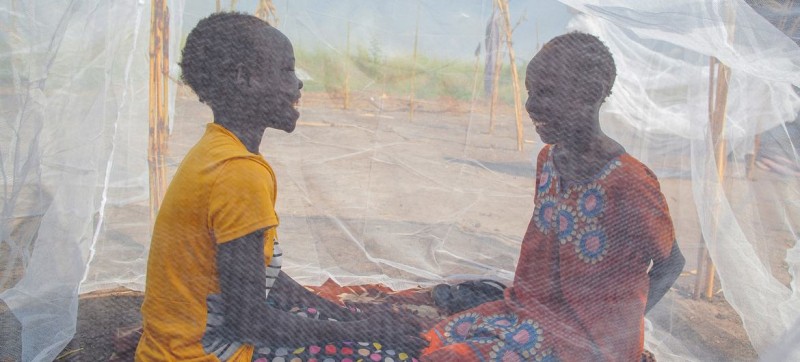Contents
Young girls chat while sitting under a mosquito net in Bienythiang, South Sudan. Despite the COVID-19 pandemic, the past year has seen “significant breakthroughs in malaria prevention and control”, a senior official of the UN health agency said on Monday, World Malaria Day. “Landmark recommendations on the use of the first vaccine against malaria – WHO Regional Director for Africa, RTS,S – were released by the World Health Organization (WHO) late last year”, said WHO Regional Director for Africa Matshidiso Moeti, referring to a protein-based malaria inoculation. “This vaccine will be used to prevent malaria among children aged six months to five years, who live in moderate- to high-transmission settings”, she added.
Use measures wisely
Noting that the day is marked annually on 25 April to focus global attention on the mosquito-borne infectious disease, and its devastating impact, especially in Sub-Saharan Africa Dr. Moeti said that this year aligns with her call to urgently scale up innovation and deploy new tools to battle malaria, while also advocating for equitable access to prevention and treatment – within the context of building health system resilience.
“While this is a ground-breaking advance in the development of new tools to fight this disease, with the potential to save millions of lives, supplies are currently limited”, she said.
As such, it is important to ensure that available doses are being used for maximum impact, while continuing to be accessible to those most at risk.
Considerable threat
Malaria remains a significant public health and development challenge, according to WHO.
In the last year, about 95 per cent of the estimated 228 million cases occurred in the WHO/AFRO Region, along with 602,020 reported deaths.
Six of those worst-impacted countries reportedly account for up to 55 per cent of cases globally, and for 50 per cent of these deaths.
“Despite some slowing of progress to reduce malaria cases and deaths, and the disruptions to health services caused by COVID-19, we are still much further ahead than we were in 2000. We need to reignite that momentum, and build on the recent advances”, the WHO official attested.
Strategizing
Meanwhile, the UN agency UNITAID said that more than two-thirds of all deaths from malaria occur in African children under age five.
With pilots co-funded by UNITAID, the Global Fund and GAVI, the world’s first malaria vaccine is being delivered to children as part of a comprehensive package of preventive care.
Vector control, which targets disease-spreading mosquitoes, is a highly effective and vital component of malaria elimination strategies.
With investments into next-generation bed nets that combat growing mosquito resistance, new spatial repellents, and by treating humans and livestock with medicine that kills mosquitoes who bite them, UNITAID is driving progress to advance new and effective tools.
Goals ahead
And with work to improve screening and treatment for relapsing P. vivax malaria – the most common type of malaria outside of sub-Saharan Africa – UNITAID is helping improve care for people in Asia-Pacific and Latin American countries.
The WHO global malaria strategy calls for a 90 per cent worldwide reduction of cases and death by 2030 – a goal that requires urgent investment to develop and deploy crucial innovations to protect people everywhere from malaria.
This requires a focus on research; leveraging evidence for the efficient use of resources while producing measurable results; working on drug and insecticide resistance; and attention on new strains arising in the region that are more difficult to detect and treat.
Commitment to fight
World Malaria Day is an occasion to “renew political commitment and encourage continued investment in malaria prevention and control”, said Dr. Moeti, calling on countries and communities affected by malaria to work closely with development partners to eliminate the disease while also contributing to achieving the other Sustainable Development Goals (SDGs).
“I personally, and the WHO Regional Office in Africa, remain fully committed to the fight against malaria,” she spelled out, assuring that “we can overcome the challenge if we collaborate closely with governments, partners and communities… to achieve a malaria-free Africa”.




Comments are closed, but trackbacks and pingbacks are open.